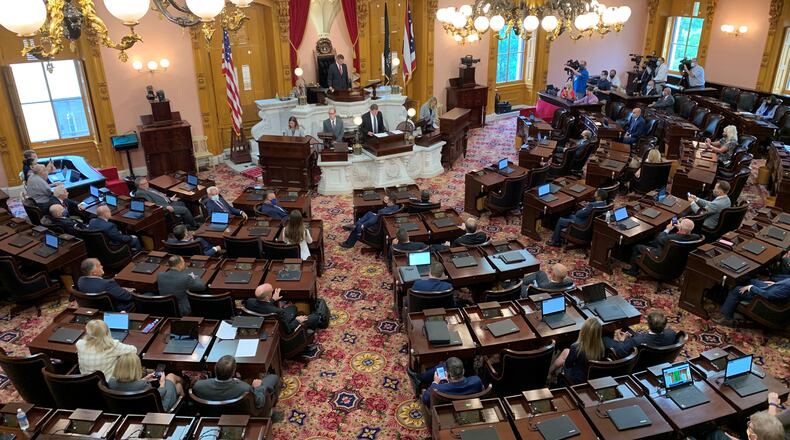“Simply put, they failed Ohioans,” said Heather Taylor-Miesle, president of Ohio Environmental Council Action Fund. “Our people will pay more, Ohio will be less competitive, and our air will be dirtier because of their ideological failures and the alleged criminal activity that led to the passage of House Bill 6.”
House Bill 6, which was signed into law by Gov. Mike DeWine in July 2019, requires payments by electricity customers across Ohio:
- $1.3 billion to subsidize nuclear power plants owned by Energy Harbor, through 2027.
- $444 million to subsidize coal plants owned by Ohio Valley Electric Corp. through 2030.
- $355 million in ‘decoupling’ revenues to FirstEnergy through 2024.
- $140 million in subsidies for large solar projects though 2027.
This week a Franklin County Common Pleas Court granted a temporary injunction to block collection of the nuclear subsidies. The next hearing on the matter is set for March 5.
Ohio House Speaker Bob Cupp, R-Lima, said in a written statement that no consensus existed around HB6.
“These policy issues will continue to be worked on next General Assembly. Time and circumstances often intervene to make the way forward clearer,” Cupp said. “We shall see.”
Federal prosecutors allege that more than $60 million was funneled through secretive political groups to put Householder into power where he helped pass and defend House Bill 6. Householder, former Ohio GOP chairman Matt Borges and lobbyist Neil Clark have pleaded not guilty to racketeering; political strategist Jeff Longstreth and lobbyist Juan Cespedes pleaded guilty.
Akron-based FirstEnergy Corp. fired its chief executive and two other top executives in October. In November the company told the Securities and Exchange Commission that the dismissals were linked to a $4 million payment to end a consulting agreement with someone who was later appointed as an Ohio utility regulator.
The FBI last month searched the home of Sam Randazzo, who later stepped down as chair of the Public Utilities Commission of Ohio.
About the Author

